I have not finished watching Lifetime’s Where Is Wendy Williams? two-part documentary but I did start it and it’s already a really brutal watch. I understand why there’s so much pushback on Lifetime for airing it and pushback on the producers and director. The initial idea was that Lifetime – already familiar with Wendy and having worked with her before – greenlighted a “comeback” documentary in 2022, after Wendy lost her talk show and she divorced her husband. I believe that Lifetime and the filmmakers went into it with good intentions, believing that they were making a “comeback” documentary for a popular cultural figure. But once they saw the state of Wendy, the cameras should have been turned off and the whole project should have been shelved. Instead, Lifetime documented just how bad it was getting for Wendy before she was diagnosed with dementia and being kept in a treatment facility. So, the Hollywood Reporter spoke to some of the people involved with the doc:
“At a certain point,” says Where Is Wendy Williams? producer Mark Ford, “we were more worried about what would happen if we stopped filming than if we continued.” So, for the better part of a year, his cameras kept rolling, documenting the increasingly fragile state that the former talk show host had found herself in, as she alternately craved family, her former TV platform and an excessive amount of alcohol, all while struggling to remain coherent. What ultimately came of that footage is a raw, devastating, four-plus hour documentary, which aired on Lifetime over two nights last weekend. Williams, her son, Kevin Hunter Jr., and her jeweler-turned-manager, William Selby, are all credited as executive producers.
Nevertheless, the eOne and Creature Films project asks more questions than it answers, including what, exactly, was going on with Williams, and why a court-ordered guardian has largely cut her off from her family. Though the latter remains a mystery to the project’s producers to this day, a press release on behalf of Williams and her current care team was sent out just ahead of the documentary, revealing that the former shock jock and TV host of 12 years had been diagnosed with primary progressive aphasia and frontotemporal dementia, which impacts language, communication behavior and cognitive function.
Then, two days before Where Is Wendy Williams? was set to debut, Williams’ guardian, whose identity is redacted throughout the doc, filed a lawsuit against Lifetime’s parent company trying to block the network from airing the two-night documentary event. A judge dismissed the request, however, citing the First Amendment. So it aired as planned, with Selby and key members of Williams’ family screening all four hours with producers beforehand. To their knowledge, Williams, who’s said to be in an undisclosed facility where her cognitive issues are allegedly being treated, has yet to see it herself.
Now that the doc has aired in its entirety, Ford along with executive producer Erica Hanson and Lifetime’s Brie Miranda Bryant agreed to hop on a Zoom to discuss its rocky road to completion, including the times they felt were neither appropriate nor safe to keep filming, and the larger purpose they hope that the film serves, even if it wasn’t their intention going in.
Mark Ford on how Wendy loved the producers: “She loves the camera, and she became very close with our producers. There was a real emotional connection that the project gave her, and honestly, it got to a point where we were more worried about what would happen to Wendy if we stopped filming then if we continued. Because we ultimately knew that we have the control and we can just not air this if it can’t be moved into a positive, redeeming direction for her where we can help Wendy and hopefully other people. And that discovery came much later in the process, how universal this story is and how many thousands of families in America are going through this exact same thing, except they’re not related to Wendy Williams, who has this massive platform. So, of course, we’re human beings. There were incredibly bad days, and there’s a lot of footage we shot that no one will ever see. But we felt like it was important to illustrate the difficult process that Wendy and her family were going through, and frankly what can happen to someone if they’re under the care of a guardian. I think the family thought, and we all thought, “Shouldn’t there be somebody here more often? Shouldn’t there be somebody filling a refrigerator and checking in on her on a daily basis?” None of those things were happening.
Before Wendy’s guardian tried to get the doc shelved, the producers say that they repeatedly tried to contact the guardian and the woman wouldn’t take their calls or provide them any guidance or let them see or speak to Wendy. The producers also say that there is a lot of really bad footage which will never see the light of day. The thing about the cameras giving Wendy a reason to get up every day is such a sad detail. Anyway, I understand their thought process a bit more, but this whole thing is exploitation on top of exploitation. Lifetime exploited Wendy and her family is exploiting her too. This whole thing is a huge catastrophe.
Photos courtesy of Avalon Red, Backgrid.
- Wendy Williams attends Apple’s “The Morning Show” Global Premiere Event on October 28, 2019 at David Geffen Hall in Lincoln Center Plaza in New York, New York, USA. photo by Robin Platzer/ Twin Images/ Avalon,Image: 540365464, License: Rights-managed, Restrictions: WORLD RIGHTS – Fee Payable Upon Reproduction – For queries contact Avalon.red – sales@avalon.red London: +44 (0) 20 7421 6000 Los Angeles: +1 (310) 822 0419 Berlin: +49 (0) 30 76 212 251, Model Release: no, Credit line: Robin Platzer/Twin Images / Twin Images / Avalon
- Wendy Williams attends Apple’s “The Morning Show” Global Premiere Event on October 28, 2019 at David Geffen Hall in Lincoln Center Plaza in New York, New York, USA. photo by Robin Platzer/ Twin Images/ Avalon,Image: 540365499, License: Rights-managed, Restrictions: WORLD RIGHTS – Fee Payable Upon Reproduction – For queries contact Avalon.red – sales@avalon.red London: +44 (0) 20 7421 6000 Los Angeles: +1 (310) 822 0419 Berlin: +49 (0) 30 76 212 251, Model Release: no, Credit line: Robin Platzer/Twin Images / Twin Images / Avalon
- New York, NY – Wendy Williams is seen arriving back at the sober house holding her lunch and getting extra protection from cops. Pictured: Wendy Williams BACKGRID USA 20 MARCH 2019 USA: +1 310 798 9111 / usasales@backgrid.com UK: +44 208 344 2007 / uksales@backgrid.com *UK Clients – Pictures Containing Children Please Pixelate Face Prior To Publication*
- New York, NY – Wendy Williams is seen arriving back at the sober house holding her lunch and getting extra protection from cops. Pictured: Wendy Williams BACKGRID USA 20 MARCH 2019 USA: +1 310 798 9111 / usasales@backgrid.com UK: +44 208 344 2007 / uksales@backgrid.com *UK Clients – Pictures Containing Children Please Pixelate Face Prior To Publication*
- West Hollywood, CA – Wendy Williams gets help to her car after dinner with a male companion at Craig’s in West Hollywood. Pictured: Wendy Williams BACKGRID USA 6 JUNE 2019 BYLINE MUST READ: CLICKSNAP / BACKGRID USA: +1 310 798 9111 / usasales@backgrid.com UK: +44 208 344 2007 / uksales@backgrid.com *UK Clients – Pictures Containing Children Please Pixelate Face Prior To Publication*

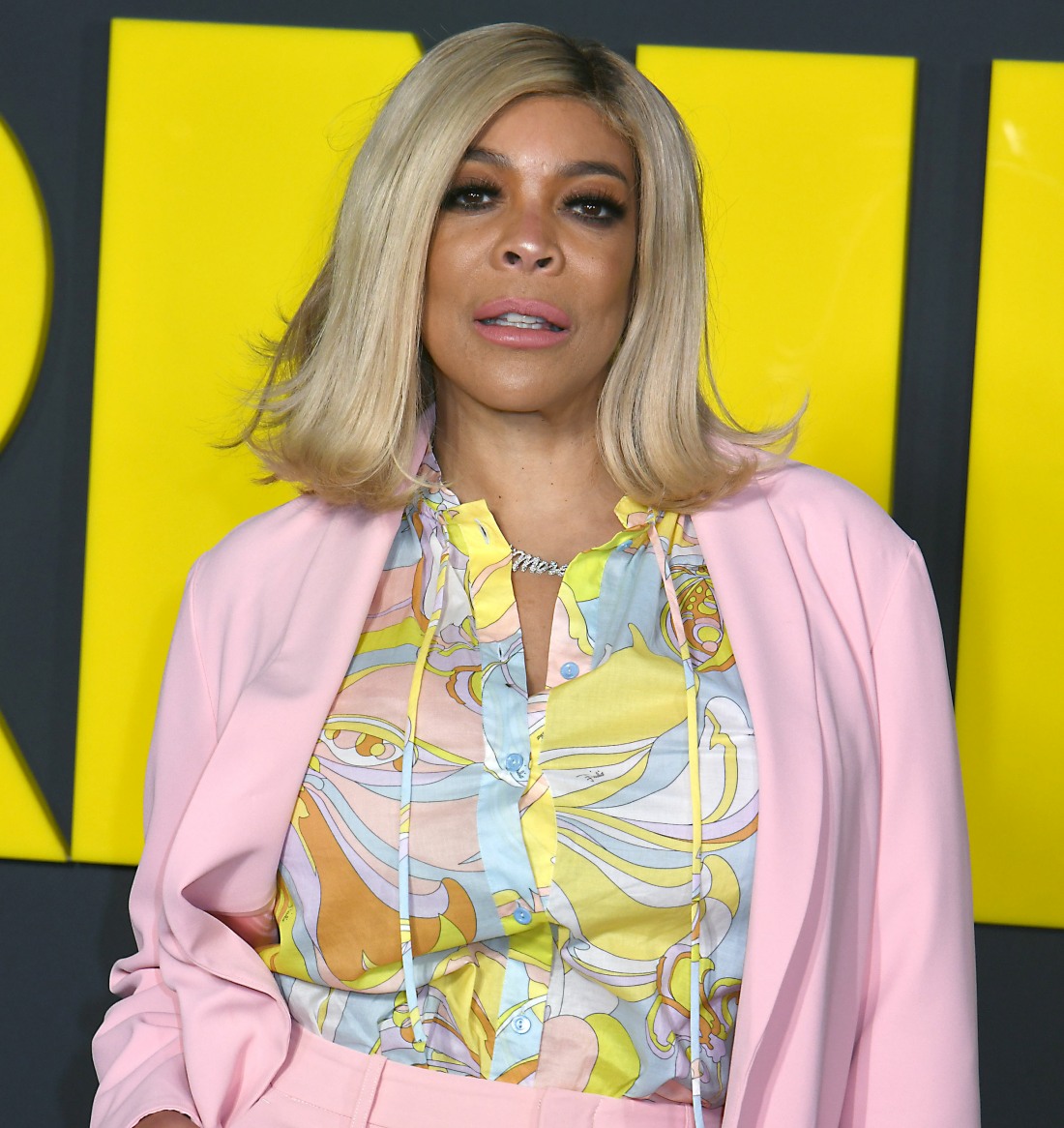
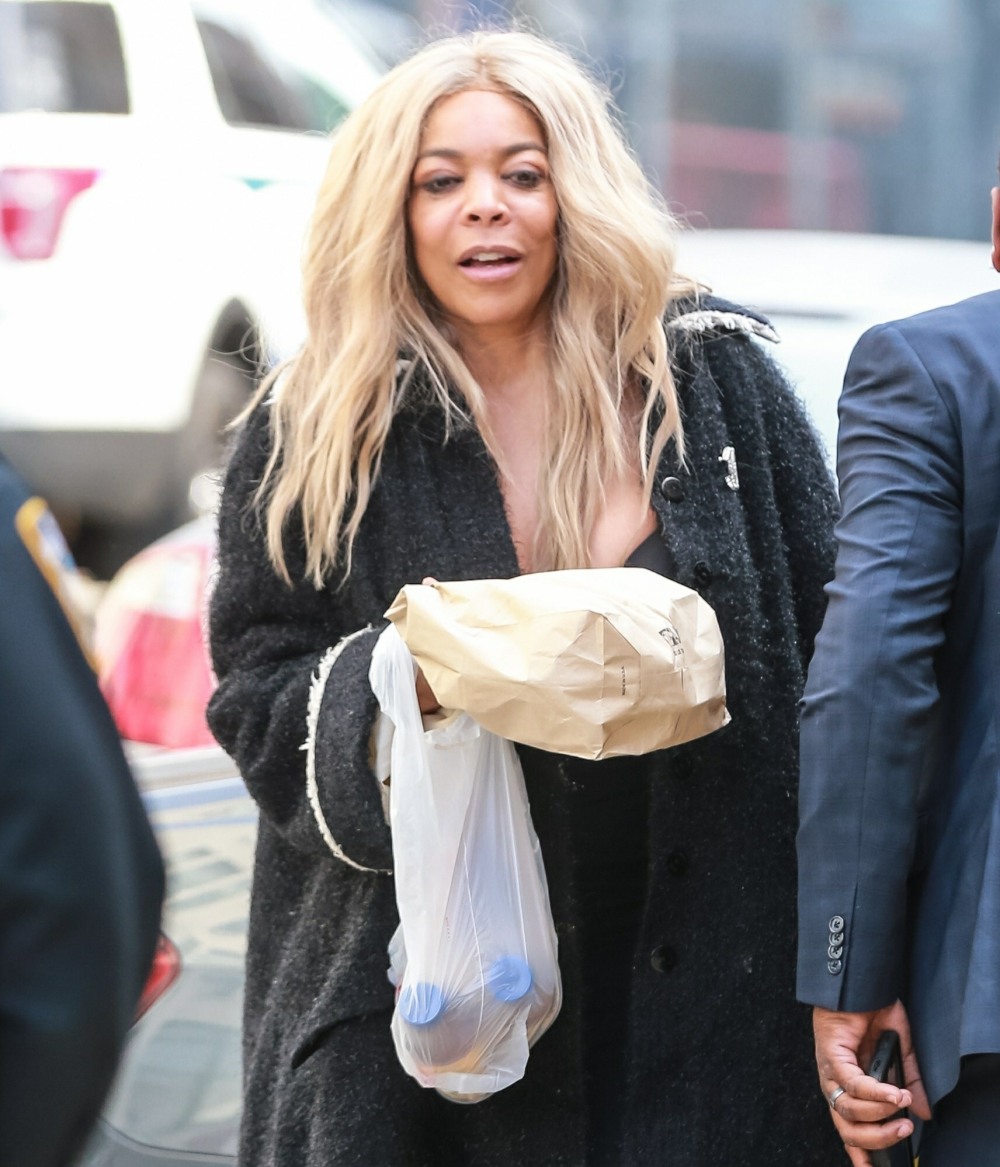








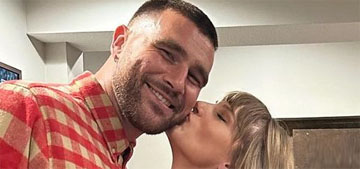
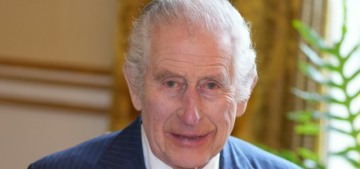
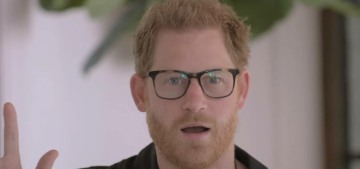




I love Wendy Williams. I was in a difficult part of my life and her show and esp her After Shows kept me engaged and happy. I wish her all the best going forward.
I can’t watch it yet.
I totally agree with Kaiser – “this whole thing is exploitation on top of exploitation. Lifetime exploited Wendy and her family is exploiting her too”. It is no wonder that there was a third party that was assigned as her guardian. That person is the only one really looking after Wendy’s interest. For the producer to actually say in the interview “I think the family thought, and we all thought, “Shouldn’t there be somebody here more often? Shouldn’t there be somebody filling a refrigerator and checking in on her on a daily basis?” is astounding. The son was their co-producer. Why didn’t he fill her refrigerator or check on her on a daily basis? He was the closest family member. It seems obvious why a guardian was appointed. How much did they earn from this? Will it go to taking care of Wendy?
Why isn’t her son filling her refrigerator? Why isn’t her sister checking on her daily? Her family can film a documentary and point the finger at other people but not actually help Wendy.